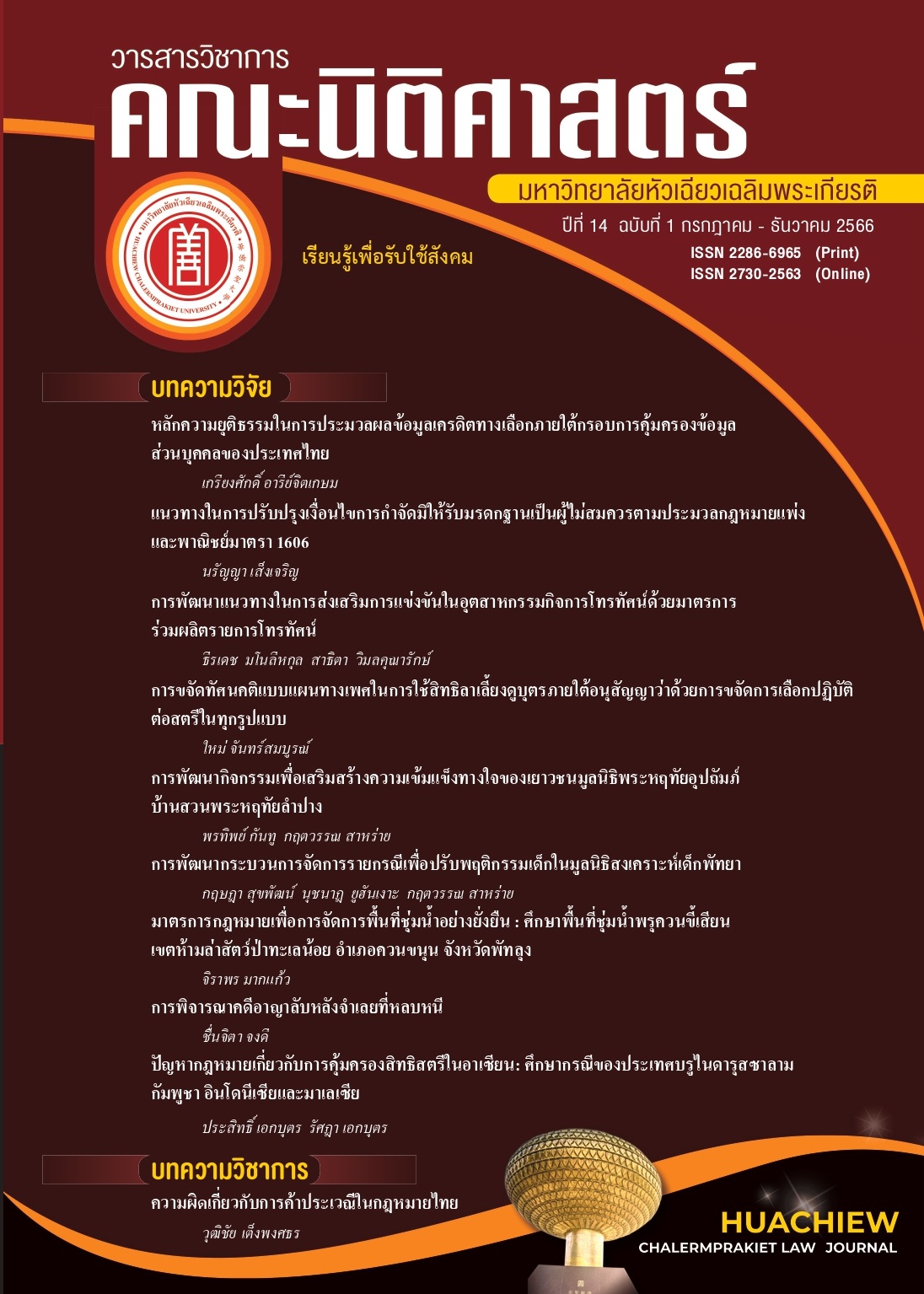Eliminating gender stereotypes in exercising the right to parental leave under the Convention on the Elimination of All Forms of Discrimination against Women (CEDAW).
Keywords:
Parental Leave, Gender Stereotypes, CEDAWAbstract
Child upbringing is a shared responsibility of both parents, but gender stereotypes tend to pose the burden of this responsibility onto women alone. Consequently, the state has an important role in taking appropriate measures to modify the social and cultural patterns of conduct of men and women. This includes promoting a proper understanding of the common responsibility of men and women in the upbringing of their children, according to article 5 of the Convention on the Elimination of All Forms of Discrimination against Women (CEDAW). The right to parental leave is one mechanism to eliminate discrimination against women, but granting these rights to both parents alone may not be adequate, considered that social norms cause men to choose to forgo these rights or to use them sparingly. This article studied cases from Sweden, Norway, and Iceland to identify appropriate measures that do not lead to discrimination against women. This study found that designing measures with gender equality in mind can lead to changes in traditional gender stereotypes of people and society.
References
Arnalds, Ásdís A., Guðný Björk Eydal and Gíslason, Ingólfur V., “Equal rights to paid parental leave and caring fathers- the case of Iceland” (2013) 9:2 Icelandic Review of Politics and Administration.
Brandth, Berit and Kvande, Elin, “Masculinity and Fathering Alone during Parental Leave” (2016) 21:1 Men and Masculinities.
Costa, Marylou, ‘Serious ramifications’: Why unshakeable gender stereotypes prevent men from taking paternity leave (28 April 2023) DIGIDAY <https://digiday.com/marketing/serious-ramifications-why-unshakeable-gender-stereotypes-prevent-men-from-taking-paternity-leave/>.
Duvander, Ann-Zofie, “How Long Should Parental Leave Be? Attitudes to Gender Equality, Family, and Work as Determinants of Women’s and Men’s Parental Leave in Sweden” (2014) 35:7 Journal of Family Issues.
Ohchr, Gender stereotyping (5 April 2023) United Nations <https://www.ohchr.org/en/women/gender-stereotyping>.
Haasa, Linda and Hwang, C. Philip, “The impact of taking parental leave on fathers’ participation in childcare and relationships with children: Lessons from Sweden” (2008) 11:1 Community, Work & Family.
Koslowski, Alison, Blum, Sonja, Dobrotić, Ivana, Kaufman, Gaufman and Moss, Peter, 18th International Review of Leave Policies and Related Research 2022 (5 April 2023) International Network on Leave Policies & Research <https://www.leavenetwork.org/annual-review-reports/review-2022/>.
Kvande, Elin, “Individual Parental Leave for Fathers: Promoting Gender Equality in Norway” In Grau Grau, M., las Heras Maestro, M. and Riley Bowles, H. (eds), Engaged Fatherhood for Men, Families and Gender Equality (Contributions to Management Science: Springer 2021).
Parlamericas, Policy Guide: Parental Leave 2020 (28 April 2023) ParlAmericas <https://parlamericas.org/uploads/documents/ Parental_Leave_ENG.pdf>.
Europa, Sweden-Parental benefits and benefits related to childbirth (5 April 2023) European Commission <https://ec.europa.eu/social/main.jsp?catId=1130&intPageId=4808&langId=en>.
Ulrike Unterhofer and Katharina Wrohlich, Fathers, Parental Leave and Gender Norms (Berlin: German Institute for Economic Research, 2017).
Downloads
Published
How to Cite
Issue
Section
License
Copyright (c) 2023 Huachiew Chalermprakiet Law Journal

This work is licensed under a Creative Commons Attribution-NonCommercial-NoDerivatives 4.0 International License.
บทความหรือข้อความคิดเห็นใด ๆ ที่ปรากฏในวารสารฉบับนี้เป็นวรรณกรรมของผู้เขียนโดยเฉพาะ คณะนิติศาสตร์มหาวิทยาลัยหัวเฉียวเฉลิมพระเกียรติ และกองบรรณาธิการไม่มีส่วนรับผิดชอบหรือไม่จำเป็นต้องเห็นด้วยกับข้อคิดเห็นนั้น แต่ประการใด








